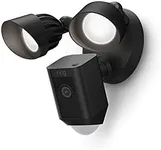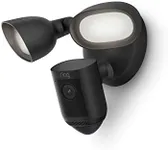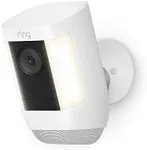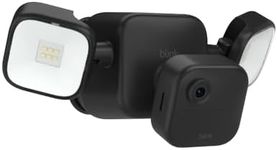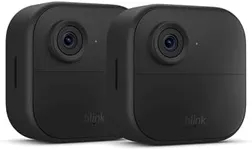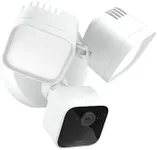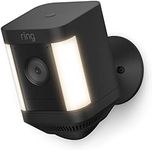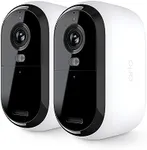Buying Guide for the Best Driveway Camera
Choosing the right driveway camera can significantly enhance the security of your home. A driveway camera helps you monitor and record activities around your driveway, providing peace of mind and deterring potential intruders. When selecting a driveway camera, it's important to consider several key specifications to ensure you get the best fit for your needs. Here are the most important specs to look at and how to navigate them.ResolutionResolution refers to the clarity of the video captured by the camera. Higher resolution means clearer and more detailed images. Common resolutions include 720p (HD), 1080p (Full HD), and 4K (Ultra HD). If you need to identify faces or license plates, a higher resolution like 1080p or 4K is recommended. For general monitoring, 720p may suffice. Consider your need for detail when choosing the resolution.
Field of ViewField of view (FOV) is the extent of the observable area the camera can capture. It is measured in degrees. A wider FOV (e.g., 120-180 degrees) covers more area, which is useful for monitoring large driveways. A narrower FOV (e.g., 60-90 degrees) focuses on a specific area, which can be useful for smaller driveways or specific entry points. Choose a FOV based on the size and layout of your driveway.
Night VisionNight vision allows the camera to capture clear video in low-light or no-light conditions. This is crucial for 24/7 monitoring. Night vision capabilities are often measured by the distance they can cover in the dark (e.g., 30 feet, 60 feet). If your driveway is long or poorly lit, opt for a camera with a longer night vision range. Ensure the camera has infrared (IR) LEDs for better night vision performance.
Motion DetectionMotion detection enables the camera to start recording when it detects movement. This feature helps save storage space and makes it easier to review footage. Some cameras offer adjustable sensitivity settings to reduce false alarms from animals or passing cars. If you want to be alerted to any activity in your driveway, look for a camera with reliable motion detection and customizable settings.
Weather ResistanceWeather resistance is crucial for outdoor cameras exposed to the elements. Look for cameras with an IP (Ingress Protection) rating, such as IP65 or IP67, which indicates protection against dust and water. A higher IP rating means better protection. If you live in an area with harsh weather conditions, ensure the camera is weatherproof and can withstand rain, snow, and extreme temperatures.
Storage OptionsStorage options determine how the recorded footage is saved. Common options include local storage (SD cards) and cloud storage. Local storage is often more cost-effective but can be limited in capacity. Cloud storage offers more space and remote access but may require a subscription. Consider how much footage you need to store and whether you prefer local or remote access when choosing storage options.
Power SourceThe power source for the camera can be wired (connected to your home's electrical system) or wireless (battery-powered or solar-powered). Wired cameras offer continuous power but may require professional installation. Wireless cameras are easier to install and can be placed anywhere but need regular battery changes or sunlight for solar models. Choose a power source based on your installation preferences and convenience.
Smart FeaturesSmart features include integration with home automation systems, mobile app access, and voice control. These features allow you to monitor your driveway remotely, receive alerts, and control the camera using your smartphone or voice commands. If you want to integrate the camera with other smart home devices or need remote access, look for cameras with robust smart features.

